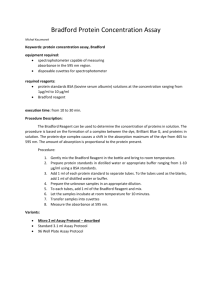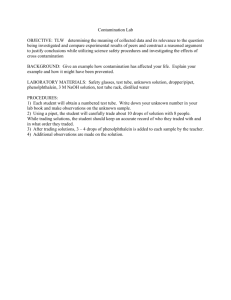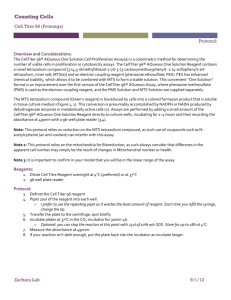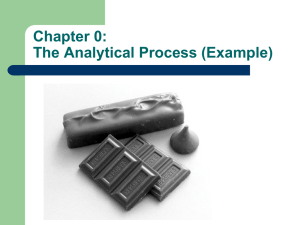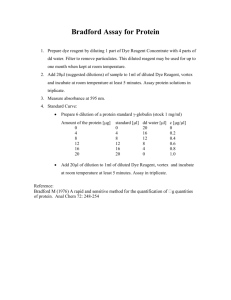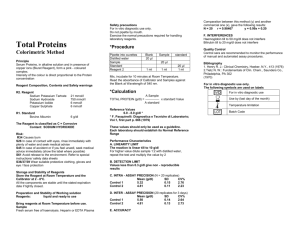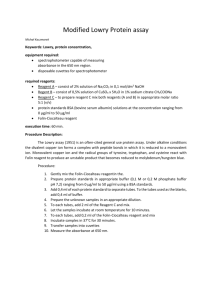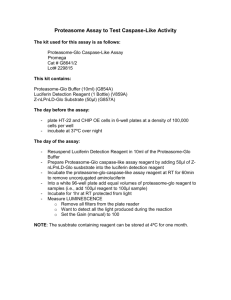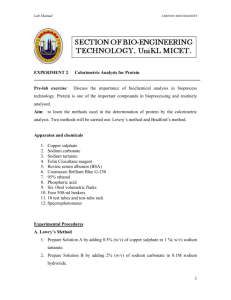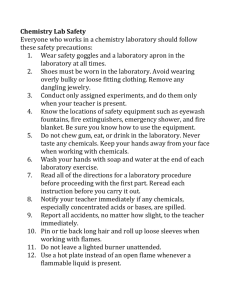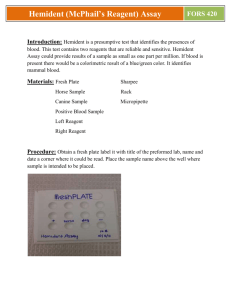Bradford Assay Protocol: Protein Concentration Determination
advertisement
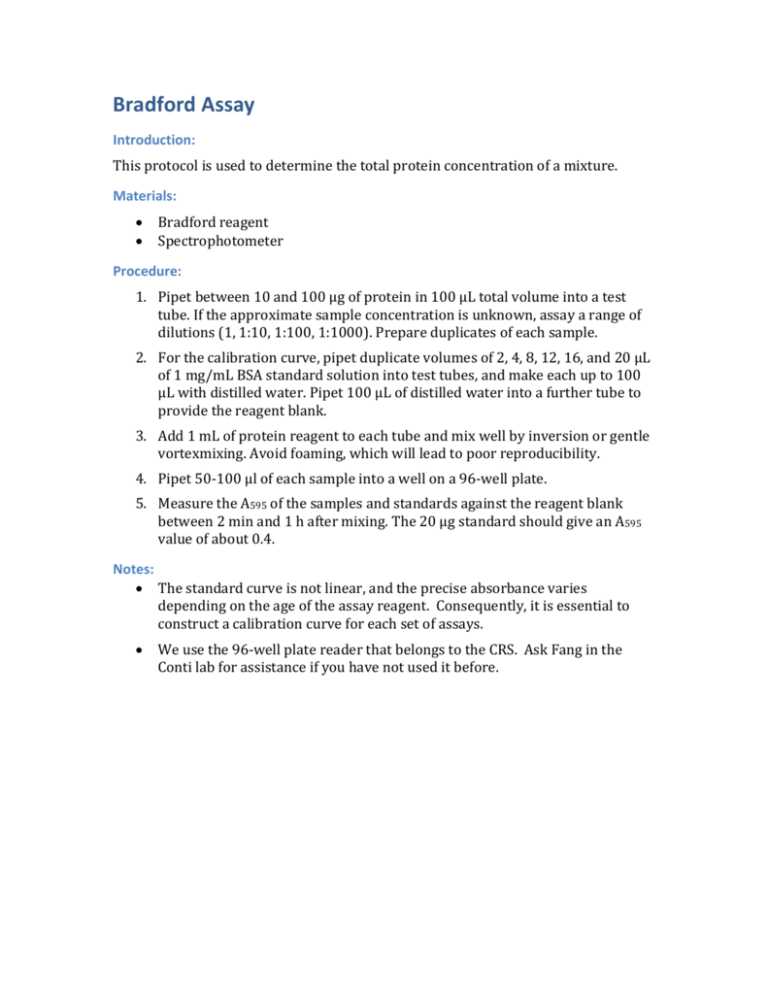
Bradford Assay Introduction: This protocol is used to determine the total protein concentration of a mixture. Materials: Bradford reagent Spectrophotometer Procedure: 1. Pipet between 10 and 100 µg of protein in 100 µL total volume into a test tube. If the approximate sample concentration is unknown, assay a range of dilutions (1, 1:10, 1:100, 1:1000). Prepare duplicates of each sample. 2. For the calibration curve, pipet duplicate volumes of 2, 4, 8, 12, 16, and 20 µL of 1 mg/mL BSA standard solution into test tubes, and make each up to 100 µL with distilled water. Pipet 100 µL of distilled water into a further tube to provide the reagent blank. 3. Add 1 mL of protein reagent to each tube and mix well by inversion or gentle vortexmixing. Avoid foaming, which will lead to poor reproducibility. 4. Pipet 50-100 µl of each sample into a well on a 96-well plate. 5. Measure the A595 of the samples and standards against the reagent blank between 2 min and 1 h after mixing. The 20 µg standard should give an A595 value of about 0.4. Notes: The standard curve is not linear, and the precise absorbance varies depending on the age of the assay reagent. Consequently, it is essential to construct a calibration curve for each set of assays. We use the 96-well plate reader that belongs to the CRS. Ask Fang in the Conti lab for assistance if you have not used it before.
